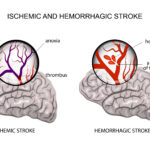The term smart drugs refers to medications that have the ability to improve cognitive abilities.
There’s a lot of controversy surrounding such medication, as many people think they’re being utilized solely from a recreational standpoint.
Although this is true to some degree, that isn’t the point behind these drugs, as they come with numerous benefits for certain health conditions.
Many people are affected by health concerns that hinder their cognitive abilities, and these spans individuals of all age groups.
With the help of cognitive enhancers, they may be able to return to normal functionality, regardless of their health issues.
In this article, you’ll learn about some important ins and outs regarding smart drugs and how they’re currently being applied.
It’ll also highlight the pros, cons, and general risks associated with cognitive enhancers.
What are Smart Drugs?
There are numerous types of smart drugs on the market, many of which are still undergoing extensive research before they become publicly available. Some people use them recreationally, even if they don’t have a medical condition that warrants their use.
Nevertheless, medical experts and researchers have developed such drugs for individuals suffering from various medical conditions.
Smart drugs aim to improve cognitive function, and this is relevant for individuals with Alzheimer’s disease and common medical issues related to aging.
Although research is ongoing for such drugs, the concept isn’t necessarily new.
In a similar fashion to smart drugs, examples like nicotine, caffeine, and amphetamines all offer a similar benefit to cognitive function. However, with the rise of smart drugs, there are ethical, legal, and social concerns.
One primary reason more research is needed for such drugs is that experts are looking for ways to make smart drugs safer and more effective for the human body.
A lot of the research that’s underway starts with genetically engineered mice.
This has shown there are more powerful cognitive enhancement solutions available, which researchers are looking to implement with new drugs for humans.
Different Types of Cognitive Enhancement Drugs
There isn’t just one cognitive-enhancing drug on the market. With a variety of different compounds, certain smart drugs come with varying use cases and dosages.
When looking at them from a prescription standpoint, some patients may need a specific drug to help with the effects of their health condition.
Others may simply have a hard time focusing, and this issue may not be correlated to a specific health concern. Regardless, smart drugs should be taken cautiously as some experts worry that they could become addictive for some individuals.
A few FDA-approved smart drugs include the following:
- Modafinil
- Donepezil
- Memantine
- Galantamine HBr
- Rivastigmine Tartrate
Each of these is used to enhance cognitive performance and comes with its own use cases based on their effects.
Some of these drugs focus on specific effects like goal-oriented problem-solving and executive functions.
As with any medication, experts are finding a handful of pros and cons in their research.
Aside from the obvious social benefits of using smart drugs, policy challenges are a whole other playing field.
For the safe and responsible use of various smart drugs, new policies need to be created to help avoid misuse.
Many of the concerns related to policy challenges include efficacy, fairness, safety, and voluntariness.
Some people are worried cognitive drugs will be administered to individuals who don’t have the ability to make the choice for themselves.
Health Risks to Consider
Many of the safety concerns regarding smart drugs are due to the fact that there isn’t a lot of data surrounding cognitive-enhancing drugs.
Although some drugs are FDA-approved, there still isn’t a lot of long-term data available.
At this time, doctors are allowed to prescribe drugs off-label without efficacy data from the FDA.
This could pose significant health risks for some individuals. However, many of these risks are still unknown due to the lack of long-term data.
There are worries that users of smart drugs could fall victim to false claims and fraudulent products without effective data on how it’ll affect them down the road.
Currently, there isn’t enough data available to highlight specific health risks related to smart drugs.
It’s safe to say that not every individual will respond well to the use of smart drugs, and some may even find their effects addictive.
Even with the many unknowns that come with smart drugs, they’re still being actively prescribed to the people who need them.
There’s enough data to support the baseline efficacy of smart drugs, and many people have responded quite well to what they have to offer.
Some researchers would agree that the use of smart drugs is in a “wild west” stage, where many changes are bound to occur with future developments.
Final Notes
Although there are many conflicting viewpoints from medical experts, researchers, and the general public, interest in smart drugs is on the rise.
Those interested in taking smart drugs should do so with caution, and it’s important to only take smart drugs that are FDA approved.
Many cognitive enhancers are used for those who are suffering from health conditions that affect cognitive abilities, but this isn’t the reality for every circumstance.
Nevertheless, smart drugs will soon become a more prevalent choice in the medical field for a variety of use cases.










